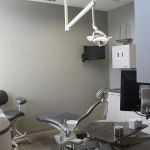How to Get a Dentist Appointment in the UK: A Step-by-Step Guide
If you're living in the UK and in need of a dentist appointment, the process can sometimes feel a little daunting. Whether you're dealing with a toothache, need a routine checkup, or are considering cosmetic dentistry, it’s essential to know how to navigate the system to get the best care possible. Having experienced this process myself, I understand how overwhelming it can be at times, especially when you’re unfamiliar with the steps or waiting lists that might be involved. Here’s a guide based on my experience, designed to make the process smoother for you.
1. Determine the Type of Dentist Appointment You Need
The first step in booking a dentist appointment is to figure out what kind of dental care you need. Are you seeking a general checkup, or do you have a more specific issue like a toothache, gum disease, or cosmetic concerns? In the UK, there are two main types of dentistry to consider: NHS (National Health Service) dentistry and private dentistry. Both have their pros and cons, so understanding what’s right for you will save time and avoid confusion when you make your appointment.
2. NHS vs. Private Dentistry: What’s the Difference?
When booking a dentist appointment in the UK, you’ll have the choice between an NHS dentist or a private dentist. NHS dentistry is more affordable, as it’s subsidized by the government, but access to NHS dentists can sometimes be limited due to long waiting lists, particularly in areas with a high population. Private dentistry, while more expensive, tends to have shorter waiting times and may offer a broader range of treatments, especially when it comes to cosmetic or complex dental procedures.
Personally, I’ve opted for NHS dentistry for most of my care because of the affordability, but I’ve also visited private dentists for more specialized services such as teeth whitening and cosmetic improvements. Understanding the differences between these options will help you make an informed decision when booking an appointment.
3. Finding a Dentist: Where to Look
Once you’ve decided whether to go with an NHS or private dentist, the next step is finding one. In the UK, the easiest way to find a dentist is through the NHS website if you're seeking NHS care. Simply visit the NHS website, and you’ll be able to search for available dentists in your area. You can filter by whether they are accepting new patients, which is particularly important since some NHS dentists have long waiting lists.
If you're going the private route, the process is a little different. Many private practices list their services and contact information online. A quick search through Google or a site like Dentistry.co.uk can give you an extensive list of private practices to choose from. It’s always a good idea to read reviews and check out the services offered before booking an appointment.
4. Booking Your Appointment: How to Avoid the Waiting Game
Once you've chosen your dentist, it’s time to book your appointment. With NHS services, this can sometimes be the most challenging part. NHS dentists may have long waiting times, especially in densely populated areas. If you’re looking for an appointment as soon as possible, it’s essential to be proactive. Call multiple dentists in your area or consider using the NHS booking tool to find available spots.
For private dentists, you’ll generally be able to get an appointment sooner, though availability still varies. When I needed an urgent appointment for a filling, I was able to get in much faster by going the private route, though it did cost more. To speed up the process, most practices allow you to book online, which is a huge time-saver.
5. What to Expect During Your Visit
When you finally get to your appointment, you may be wondering what to expect. Whether you’re seeing an NHS or private dentist, the process should be fairly similar for a standard checkup. After a brief consultation, the dentist will examine your teeth and gums, potentially take X-rays, and discuss any treatments that may be necessary.
If you’re visiting for a specific problem, such as a toothache or gum swelling, your dentist will work with you to diagnose the issue and offer a treatment plan. It’s important to ask questions during the consultation if you're unclear about any aspect of the treatment or your care. I’ve learned that being proactive and asking questions during my own visits ensures that I understand exactly what’s happening with my dental health.
6. After the Appointment: Follow-Up and Additional Care
After your appointment, you may be given instructions for follow-up care or further treatments. For example, if you had a cavity filled, your dentist may recommend avoiding certain foods for a day or two. In more serious cases, such as tooth extractions or complex treatments, your dentist may schedule a follow-up visit to ensure everything is healing properly.
If you’re going the NHS route, follow-up care is often included, though you might need to book additional appointments depending on the treatment required. Private practices might charge separately for follow-ups, so it’s important to clarify costs upfront if you’re unsure.
7. Cost Considerations and Insurance
The cost of your dental treatment will vary depending on whether you opt for NHS or private dentistry. NHS dentistry is generally more affordable, but it’s important to be aware of the fee structure. NHS services are divided into three bands, with Band 1 being the least expensive and Band 3 covering more complex treatments.
Private dental care can be significantly more expensive. The cost will depend on the type of service you require, whether it’s a routine check-up or something more complex like braces or veneers. To save on costs, many people choose dental insurance or dental plans, which can help offset the high expenses of private dentistry.
During my own experience with private dental work, I’ve found that investing in a good dental insurance plan was worthwhile. It’s always a good idea to inquire about payment options and insurance coverage before booking major dental work, as this can prevent unexpected financial strain.
8. Handling Emergency Dental Appointments
If you’re dealing with a dental emergency—such as a broken tooth or intense pain—it’s important to seek care as soon as possible. Both NHS and private dentists offer emergency services, but availability might be limited, especially for NHS services. I’ve personally faced dental emergencies in the past and found that private dentists were able to provide faster care during urgent situations.
In any case, it’s essential to call ahead and explain your situation to the receptionist. They will help prioritize your appointment based on the severity of the issue. In an emergency, don’t hesitate to reach out to your dentist’s office and be clear about your needs.
Remember, keeping your teeth and gums healthy is an essential part of overall wellness. Regular check-ups and prompt treatment of any dental issues can help prevent more serious and expensive problems down the road. Whether you're visiting an NHS dentist or a private practice, making dental care a priority is an investment in your long-term health.
For the best recommendations and options for dental care, feel free to check out Dentistry Toothtruth, where you'll find trusted advice and services tailored to your needs.
SEO Title: How to Get a Dentist Appointment in the UK: A Step-by-Step Guide
SEO Keywords: dentist appointment UK, how to get a dentist appointment UK, NHS dentist appointment, private dentist appointment, dental care UK
SEO Description: Learn how to book a dentist appointment in the UK, whether you choose an NHS or private practice. Discover tips for getting the best care, handling emergencies, and understanding costs. Visit Dentistry Toothtruth for trusted recommendations.







 Dr. David S. McGee, DMD5.0 (10 review)
Dr. David S. McGee, DMD5.0 (10 review) Dr. David Scharf - Long Island Periodontist & Dental Implants4.0 (234 review)
Dr. David Scharf - Long Island Periodontist & Dental Implants4.0 (234 review) Harbor Cove Dental5.0 (191 review)
Harbor Cove Dental5.0 (191 review) Perth Amboy Pediatric Dentistry & Orthodontics4.0 (455 review)
Perth Amboy Pediatric Dentistry & Orthodontics4.0 (455 review) All Star Dental Clinic4.0 (322 review)
All Star Dental Clinic4.0 (322 review) Coker Dental: Dr. William L. Coker, DDS4.0 (25 review)
Coker Dental: Dr. William L. Coker, DDS4.0 (25 review) The Importance of Oral Health Education During Pregnancy for a Healthy Pregnancy
The Importance of Oral Health Education During Pregnancy for a Healthy Pregnancy Best Tips for Brushing Your Teeth Properly for Healthy Gums: Essential Techniques for Oral Health
Best Tips for Brushing Your Teeth Properly for Healthy Gums: Essential Techniques for Oral Health Why Skipping Dental Checkups Can Lead to Bigger Oral Health Problems
Why Skipping Dental Checkups Can Lead to Bigger Oral Health Problems Advantages of Porcelain Dental Restorations
Advantages of Porcelain Dental Restorations How Can Diabetes Cause Tooth and Gum Problems? Preventing and Managing Oral Health Issues
How Can Diabetes Cause Tooth and Gum Problems? Preventing and Managing Oral Health Issues Healthy Habits for Promoting Good Oral Health and Hygiene: Tips for a Healthy Smile
Healthy Habits for Promoting Good Oral Health and Hygiene: Tips for a Healthy Smile